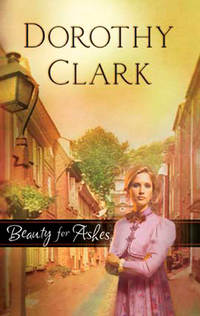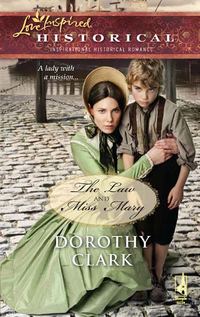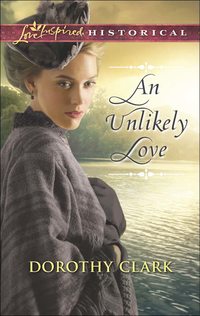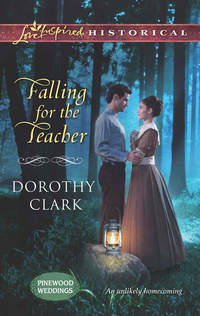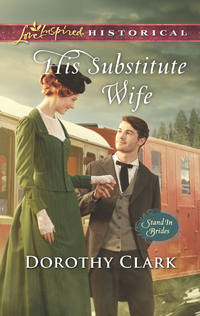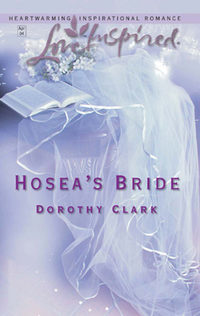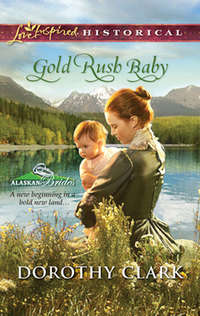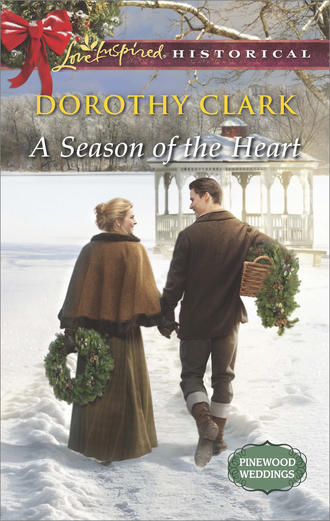
Полная версия
A Season of the Heart
“Not true love, Ellen.”
Enough! She would not be belittled because she chose to follow her head instead of her heart. “And how does one know the difference?” She threw a challenging glance over her shoulder. “You and your mother were both deceived. I prefer not to take that chance.” She looked back at the flames devouring the wood, the way poverty turned love into ashes. “Mother told me love is simply an emotion that will trap you in a log cabin with a husband who spends his time trying to earn enough to provide food and shelter for you and the children that come of such a union. She was not interested in that menial sort of life. That’s why she married Father. And she’s never regretted her decision.”
She lifted her chin, turned and faced Willa again. “I’m not interested in that sort of drudgery either, Willa. I mean to have every advantage—and both Mr. Lodge and Mr. Cuthbert can provide them. And both have spoken for my hand. That’s why I’ve come home. I have to decide which man will best serve my plans. As for love—” she gave an eloquent little shrug “—I’m certain a fondness between me and the man I choose to marry will develop over the years. And if not...” She looked at the happiness glowing in Willa’s eyes and caught her breath at a sudden empty feeling inside. Daniel’s crooked grin appeared before her, enticing her. Foolishness. Daniel was nothing but a friend from her childhood. A teamster with nothing to call his own. She blinked the image away and ran her hands over the rich fabric of her gown. “If not...I will have the finest of everything to take its place.”
Chapter Two
“Whoa.” Camp had never looked so good. Daniel draped the reins over the edge of the wood seat, jumped off and trudged to the back of the pung’s low wood box. A quick swipe of his gloved hand cleared the mounded flakes off of the molasses keg and he hoisted it to his shoulder. Bits of clinging snow fell off the keg against his neck, sent a shiver chasing down his back. He ignored the chill and searched for the neck of the burlap bag, took hold and pulled it free.
The pigs milling around the kitchen door waiting for the cook to throw out the leavings from his supper preparations came snorting and grunting, pressing against his legs as they fought for position. “Give over!” He kneed them aside, stomped his way to the log building and gave the door a swift kick.
Irregular footsteps thumped against the puncheons of the kitchen floor. The door was yanked open. “Ain’t ya got a hand?”
“Not an empty one.” He thrust the burlap bag at the scowling cook. “Here are the things you ordered.”
“’Bout time.” The cook folded a meaty fist around the neck of the bag, kicked the door shut and limped his way over to the worktable.
“What are you grumbling about, Smiley? You’re still alive, aren’t you?” He grinned and shrugged the keg of molasses off his shoulder onto a long plank shelf on the wall. Heavy boots thumped against the floor in the other room. “You’d better get the coffee going if you plan to stay that way. The men are coming in.”
“I’m lame, not deaf. I hear ’em.” The cook tugged open the strings on one of the sacks of coffee beans, dumped some in the grinder and turned the crank. The beans popped and crackled, the fragments whispering down the chute into a bowl and releasing their tantalizing fragrance to blend with the smell of the beef stew simmering in the iron pots hanging in the fireplace. Loaves of fresh-baked bread piled on a table by the dining room door added their tangy sourdough aroma.
Daniel tugged the shoulder of his coat back in place, turned and took a deep sniff. “Smells good in here, Smiley. Feels good, too. It’s turning nasty outside. The temperature’s dropping fast.”
“Then, was I you, I’d stop jawing and get some heat in the dining room.”
“My exact intentions.” He grinned and clapped the scowling cook on the shoulder, strode by the table loaded with bread and into the dining room. “Irish, come help me carry the woodstove in from the pung.”
A roar of approval rose from the snow-covered loggers stomping in from outside to find a place on the plank benches alongside the sawbuck tables.
“Ja. Und be quick about it, Irish!” A ham-sized fist landed on the thin Irishman’s shoulder as he turned back toward the door. “Get those jigging feet moving so ve can have some heat in here, ja? It’s bad enough ve freeze—”
“Thump me again, Hans, an’ you’ll not be warmin’ yourself by any fire.” Irish scowled and pulled his coat collar up around his neck. “’Tis eatin’ an’ sleepin’ in a snowbank you’ll be doin’.”
The stocky German wobbled his knees and shook his arms, pretending to quake in his boots. A burst of laughter filled the room.
“An’ that—” Irish yanked the rolled brim of Hans’s hat down over the German’s face “—will get you the joy of helpin’ me fetch in an’ set up the stove, while Danny-boy-o tends to his horses.”
The crowd of laughing loggers parted, making a pathway to the door. Irish gave Hans a friendly shove and followed him outside.
Daniel grinned at their antics and stepped back into the kitchen. “Save me some supper, Smiley. I’ll be back when I’ve stabled Big Girl.”
“I ain’t yer servant. Come before the victuals are gone, or feel yer stomach pressing against yer backbone all night.” The cook grabbed a pair of gloves off the table and waved them in his direction. “What am I supposed to do with these—add ’em to the stew?”
“It might improve it some.” He laughed at the cook’s growl, took the leather gloves from his meaty hand and stuffed them into his jacket pocket. “Guess those got tossed in the bag by mistake. I’ll take them back next time I go to town.” He tugged his collar tight around his neck and headed for the door. “Don’t forget to save me some supper—a crust of bread will do. As long as it’s followed by some of that dried apple pie I see on the warming shelf.” He yanked open the door and hurried to the pung to unhitch. There didn’t look to be an abundance of those pies, and Smiley was only one man against all those hungry loggers.
* * *
“C’mon, Big Girl, that’s enough.” Daniel tugged on the reins and the mare obligingly lifted her muzzle from the creek and followed him to the stable. Soft whickers from her barn mates greeted them. The Belgian’s hoofs thudded against the puncheons, the vibrations quivering beneath his feet. He opened the stall door and led the mare inside, slipped her bridle off and stroked the white race that flowed from her poll to her muzzle. “Good job, pulling the pung through those deep drifts, Big Girl.” The Belgian lowered her head and nudged him in the chest.
“So you want food instead of praise, huh? All right, don’t push. I’ll get out of your way.” He stepped aside, and the chestnut stretched out her thick neck and grabbed a mouthful of the clean hay in the rack. He patted her shoulder, hung the bridle on a peg and grabbed a grooming cloth. The mare’s contented munching accompanied his long sweeping strokes as he dried her huge body.
Being a teamster wasn’t a bad life. He worked hard hauling logs and caring for the horses—not as hard as when he’d been a logger, of course. Still, he was tired enough at day’s end to sleep without dreaming most nights. The tightness in his gut told him this wasn’t likely to be one of them. His unexpected meeting with Ellen was too fresh, the images of her too strong, the sound of her voice too recent, for him to block them from his mind. It was always that way when she came home. A residue of his childhood love for her.
He frowned, swapped the wet cloth for a dry one, smacked the mare’s hip to let her know he was going behind her and crossed over to wipe down her other side.
He disliked teasing Ellen to the point of anger. Not that it took much teasing with her flash temper. But when he was face-to-face with the spoiled, selfish woman she’d become, disappointment stung him like a slap to the cheek and sharpened his tongue. She’d been so sweet, so kind and loving— He sucked in a deep breath, tugged his thoughts from what had once been. It was good for him she had changed. A grown man would look mighty foolish carrying around the sort of crush he’d had on her when they were kids. Especially since she wouldn’t give him a passing thought as a beau. Not with his life. And she was right not to. He had nothing to offer any woman, let alone a woman like Ellen who lived a life of ease.
The mare nickered, swung her head around and butted his shoulder. He shot out his right leg to brace himself. “Sorry, Big Girl. I didn’t mean to ignore you.” He tossed the wet rag over the stall wall beside the other one and picked up the comb to take any tangles out of the chestnut’s flaxen mane and tail. One thing about working with horses—you couldn’t waste time feeling sorry for yourself too long.
“You’re all set, girl.” Daniel tossed her blanket over the Belgian’s back, pulled the hold strap snug against her broad chest so it wouldn’t slide askew through the night, fastened the buckle, then strode to the feed bin. He shoved a pail beneath the hopper chute, lifted the door and let the grain flow until it was full. “Here’s supper, Big Girl.”
The gelding in the stall on his left whickered, tossed his massive head and thudded his front hoof against the floor.
“I’m coming, Big Boy.” He dumped the oats and bran into the mare’s manger, closed the stall door and returned to the feed bin for another pail of grain.
* * *
Ellen turned back a page and studied the dress in the picture. “Mother, have you any shaded velvet material at your shop?”
“Why, yes, I do.” Her mother glanced up from the feathers she was sorting. “I don’t recall any velvet dresses in that magazine. Why do you ask, Ellen?”
“I need a new gown for when Mr. Lodge and Mr. Cuthbert come to visit over the holiday, and I think this one may suit.” She pulled her fringe-trimmed silk wrap close around her, rose from the chair in front of the fire and walked over to sit beside her mother on the settee. “It’s this coatdress, with the high neck, moderate cape and tight sleeves.” She indicated the dress she was considering. “See how the narrow belt above the long full skirt shows off the model’s small waist.”
Her mother glanced at the magazine she held out, then leaned forward and placed a black feather in a pile with other black ones. “It’s a lovely dress, dear. But it’s made of silk.”
“Yes, but you know how I hate to be cold.” She gave her mother a hopeful glance. “Could you make me this dress in velvet? It would be so lovely and warm.”
“Well...” Her mother laid the remaining handful of feathers in her lap, took the magazine into her hands and tilted it so the candle on the stand beside her illuminated the picture. “Yes. This design is simple but elegant. It can be made of velvet.”
“Wonderful!” She rose and hurried back to the stand by the fire. “And with velvet in the shop, you can start—” She stopped, frowned. “What color is the velvet?”
“It’s a beautiful shade of plum.”
“Oh, Mother—plum? With my fair skin?” She put on a pout.
“That will not be a problem.” Her mother went back to sorting feathers. “I have a length of dark green velvet left from the cape we made for Rebecca Cargrave. I can use that for the high collar and add a wide band of it around the hem of the shoulder cape. It will look lovely against your skin and make your eyes seem bluer.”
“Plum with dark green trim...” Her lips curved in a smile. “That’s a wonderful idea, Mother. I’ll need the dress—”
“Before your beaux arrive—I know. Polly and Hanna are both engaged with other orders, but you’ve no need to be concerned. I’ll make it myself. I shall start cutting the pattern promptly.” Her mother looked up and smiled. “As soon as I finish attaching the trimming to the blue merino gown I made you for the holiday.”
“Oh, Mother...truly?” She laughed and moved a little closer to the fire. “I should have known you would think of my need for a new gown.”
“Indeed.” Her father raised his head from his reading. “You must look your very best when your gentlemen friends come to call. Have you made your decision as to which one’s hand you will accept?”
“Not yet.” Daniel’s grinning face flashed before her. She frowned and pushed at the curls dangling at her temples. “It’s difficult to know what is the wisest thing for me to do as each man has his own recommendations. That’s why I’ve come home to decide. I need your counsel, Father. And yours, too, Mother.”
“My choice is Mr. Lodge.” Her mother placed the last white feather on its pile, then folded the piece of fabric they rested on over them to make a neat package. “You did say he is the wealthier of the two, did you not?”
“Yes. But—”
“Don’t be hasty with your advice, Frieda.”
“Whatever do you mean, Conrad?” Her mother glanced at her father, then finished folding the fabric over the pile of black feathers and started wrapping the brown ones. “You’ve always said Ellen should marry a man of means and prestige.”
“I have indeed. And I stand by that opinion. I meant only that you are, perhaps, judging these men too quickly.”
“Well, I don’t see how that can be.” Her mother’s voice held a hint of irritation. “Ellen has told us that both Mr. Lodge and Mr. Cuthbert are men of wealth and prestige. And that there are no personal considerations involved. Therefore, I choose Mr. Lodge as the wealthiest.”
“He is the wealthiest at the moment, my dear. But Ellen is wise to consider the future.”
“Thank you, Father.” Her heart warmed at her father’s smile. His approval was seldom given.
“I don’t understand. Ellen can’t know the future, Conrad. No one can. It’s chancy at best.” Her mother frowned, stacked the small packages of feathers into a pile and secured it with a ribbon.
“Very true, my dear—in most cases. But Mr. Cuthbert is a politician of some renown.” Her father laid down his book, looked up at her and again smiled. “If, as Mr. Cuthbert has implied to Ellen, his appointment to the position of secretary of state, by his friend the governor, is approved by the Senate, he will be a man of great influence in the entire state.” His smile widened. “That opens the path to greater wealth as there will be those who wish to curry his favor. And, of course, should this come to pass, there would also be the possibility of a national political future for him. And great prestige for members of his family.”
“Oh, my! I hadn’t thought—” Her mother gazed up at her, a speculative look in her eyes that morphed into one of admiration. “Why, Ellen...you could attend dinner parties and soirees with our governor and...and perhaps, someday, with the president! Oh, daughter—” her mother rose, rushed to her side and wrapped her in an enthusiastic hug “—you have exceeded our plans and expectations. I’m so very proud of you!”
* * *
Ellen strolled around her bedroom, reflections of the flames from the fireplace dancing on the flowing silk of her dressing gown. Which man should she choose? Her father had given her a great deal to think about. She hadn’t considered that a highly placed politician would be in a position to make wealth from those who curried his favor for one reason or another.
A twinge of unease rippled through her. Was that lawful? To sell your political influence? Oh, of course it was. Her father wouldn’t have been so approving if it were not. And anyway, what did it matter? If she chose to marry Mr. Cuthbert, his actions would have nothing to do with her.
The uneasiness rippled through her again. She pushed it aside, stepped out of her slippers and removed her dressing gown. The softness of the mattress and warmth of the covers enfolded her. She stretched out her legs, searching with her toes for the towel-wrapped, heated soapstone the housekeeper would have placed at the foot of the bed. Ah, there it was! She placed her feet against the warmth, snuggled into a comfortable position on the down-filled mattress and yawned.
She had been favoring Mr. Lodge as her future husband. He was much younger and better looking than the stout, balding Mr. Cuthbert. And Mr. Lodge’s dark hair and beard were a handsome contrast to her blond curls and fair skin. And he was the wealthier of the two. Still, the prestige of being a prominent politician’s wife was not to be overlooked....
She tucked the quilt more closely beneath her chin and smiled. Imagine dining with the governor! Her mother and father would be so proud of her. And if what her father had said was true—and it surely was—Mr. Cuthbert might soon be wealthier than even Mr. Lodge. He would surely be more powerful. And there was another reason to give preference to Mr. Cuthbert. His age. He was a widower with grown children older than she. He would not demand an heir, as would Mr. Lodge. Yes, she would have to reconsider.
What of love?
Her face tightened. She turned onto her side and stared at the flames devouring the wood on the hearth. Willa had no right to challenge her decision to follow her parents’ advice and marry for comfort and prestige. Her friend was only jealous. Willa would be forever stuck in this small village, serving the people as their pastor’s wife, while she would be living a life of ease and social prominence in Buffalo—or attending parties with the governor and other high officials in Albany. Oh, what an entrance she would make into that social scene!
She smiled and closed her eyes, imagining her first attendance at a governor’s ball. The men would all be in handsome evening wear, and the women would all be richly gowned. But her gown would be more lavish and beautiful than all the rest, and every eye would be on her as she entered on Mr. Cuth—Daniel.
Her breath caught.
She jerked her eyes open to rid herself of the image of him standing in the midst of all that finery in his logger clothes with his green eyes laughing, his mouth slanted in that teasing, heart-stealing grin and his hand held out to her.
* * *
Daniel shivered and tugged the covers closer around his neck. The temperature had to be below zero and falling to make the boards creak like that. Even with the drafts adjusted wide and the coals burning hot, the woodstove couldn’t warm the small lean-to attached to the stable. The cold emanated from the sawn-wood wall behind his cot and chilled his back, even through his blankets. Nights like this, he almost wished he slept in the common room of the camp house with the loggers, snores, smells and all. At least the log building held the cold out and the heat in. He frowned and flopped over so his back was toward the stove.
Ellen hated to be cold.
The thought came unbidden and unwanted along with a memory of her looking up at him from beneath her fur-trimmed bonnet. He scowled and opened his eyes to replace her image with the sight of the moonlight-washed rough board only inches from his face. Why didn’t she stay in Buffalo? When she came home, when he’d seen her again, all the old memories resurrected in spite of his good sense.
He stared at the board, at the grain that looked like flowing water. He’d loved Ellen when he pulled her, pale and struggling for breath, out of the flood-swollen waters of Stony Creek twelve years ago, and a remnant of that boyhood love was buried beneath all that had transpired since that time. It lingered with the stubbornness of a burr in a horse’s tail. He’d given up thinking the memory of that childhood love would someday die. If his dislike of the uppity, citified, stuck-up fidfad Ellen had grown up to be hadn’t killed it by now, nothing would.
He blew out a cloud of breath. At least his pride was intact. Only Willa knew how he’d once felt about Ellen—and she’d promised to keep his secret. Callie and Sadie suspected, but they didn’t know. And Ellen, for sure, didn’t know. As long as that was true, he could live through her rare visits home. He just came out of them feeling like the boor she accused him of being.
He pulled in a lungful of the cold air, coughed and burrowed his head beneath the blanket to block the aching cold on his forehead. The memories had brought the familiar knots to his stomach. He pressed his lips into a thin line and forced himself to stop remembering that it could all have been different, if only his father hadn’t died.
Chapter Three
It was still snowing. Ellen tossed the magazine onto the settee, rose and went to the window. Snow clung to the wood grids that separated the glass, leaving only the center section of each small pane clear. She caught a glimpse of movement, leaned close and looked to the side. Asa was shoveling their slate walk. For what purpose? There would certainly be no callers today.
She glanced at the road, at the snow rutted by the runners on pungs and sleighs and trampled by the hoofs of the horses that pulled them. Not that many were passing. The blizzard had slowed village life to a crawl. Her warm breath fogged the glass. She shivered at the draft of cold air coming off the small panes, pulled her lace-trimmed silk wrap more closely about her shoulders and went to stand by the fire.
A log popped. Cinders dropped to the shimmering coals and the flames flared. She pulled her long full skirt back away from the edge of the hearth, smiled and ran her hand over the smooth Turkish satin material. She loved the way the skirt was caught up at random intervals with a silk knot securing the resulting puff. She was the only one she knew who had a dress of this design. Of course, the other women in the social set would have copied it by the time she returned to Buffalo.
Her smile faded. Her women acquaintances in the city would not be standing in an empty room wishing for something to do. They would be at the dressmaker’s being fitted for a new gown, or paying calls on others of their set and enjoying a gossip over tea this afternoon, before hurrying home to prepare for the evening’s entertainment. What would it be for tonight? A dinner party? A musical? Or the theater? There was always something important to attend. One had to be seen at the right places. Had she erred in coming home for the holiday?
She sighed and ran her fingers over the silk knot that secured the narrow band at her waist. What good was a stylish gown if there was no one to admire or envy it? The silence pressed in upon her, increased her restlessness. Her mother and father had gone to their shops. There was no one to talk to and nothing to do. Her mother didn’t even need her for a fitting for her new gowns. And she certainly wasn’t going to walk to town in this weather.
She shivered at the thought, walked back to the window and looked out. There was nothing to see but the road, the empty field across the way and the parsonage, barely visible through the rapidly falling snow. She huffed out a breath, turned away, then turned back. The parsonage wasn’t that far. And Willa was there. Of course, there was that open field to cross.
The wind gusted, drove the falling snow sideways and moaned around the window, dashing her hope. It was foolishness to even think of going outside. Still, her cloak was warm....
The lure of tea and conversation with her old friend pulled at her. She whirled from the window and hurried up the stairs to her bedroom. Wading through that deep snow in the field would ruin her silk gown. She would wear one of her old dresses.
* * *
“Give me twenty minutes or so, Daniel. That wound is going to take some cleaning before I stitch it up.”
“All right, Doc. I’ll be back to get him.” Daniel led Big Boy to a spot beside Doc’s stable where he’d be out of the wind, fastened the blanket on him, then trudged his way across lots to the parsonage.
“Woof!”
“Hey, Happy...” He bent down and scratched behind the ears of the dog standing watch at the top of the back porch steps. “Waiting for Josh, are you?” The dog let out a whine, lay down with his muzzle resting on his crossed front paws and stared toward the road. He grinned and thumped the dog’s solid, furry shoulder. “I wish I’d had a dog like you to roam the woods with me when I was a kid. We’d have had ourselves a time.”


